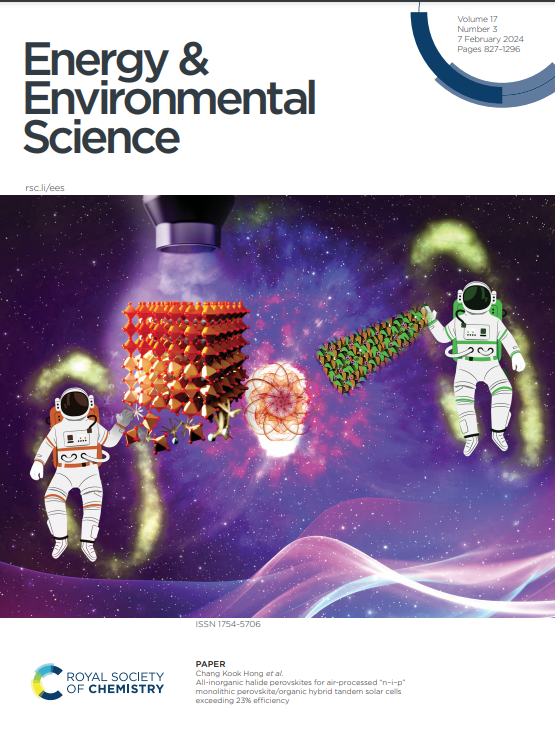Asymmetric Evaporation for Efficient and Simultaneous Extraction of Freshwater, Salt, and Electrical Energy from Seawater
IF 32.4
1区 材料科学
Q1 CHEMISTRY, MULTIDISCIPLINARY
引用次数: 0
Abstract
The simultaneous extraction of freshwater, salt, and energy from seawater using solar interfacial evaporation methods still faces significant challenges. Here, a novel asymmetric evaporation model is proposed. This asymmetric evaporation can create differences in water supply/loss ratios at the evaporation surface, thereby elevating salt concentration gradients in specific directions. Consequently, during the freshwater extraction process, solid salt precipitates and accumulates only on the side of the evaporator away from the seawater supply center, facilitating convenient collection. Additionally, the introduction of the positively charged polyacrylamide gel into the evaporator can decelerate the movement of cations in the seawater. This results in a significant potential difference between the evaporator surfaces away from the seawater supply center and those near the seawater supply center, enabling the continuous output of electrical energy. Therefore, the asymmetric evaporation evaporator realizes the efficient simultaneous extraction of freshwater, salt, and electrical energy from seawater.非对称蒸发法同时高效提取海水中的淡水、盐分和电能
利用太阳能界面蒸发法同时从海水中提取淡水、盐分和能量仍面临巨大挑战。这里提出了一种新的非对称蒸发模型。这种非对称蒸发可在蒸发表面造成水供应/损失比的差异,从而提高特定方向的盐浓度梯度。因此,在淡水提取过程中,固体盐只在蒸发器远离海水供应中心的一侧析出和积聚,便于收集。此外,将带正电荷的聚丙烯酰胺凝胶引入蒸发器可以减缓海水中阳离子的移动。这样,远离海水供应中心的蒸发器表面和靠近海水供应中心的蒸发器表面之间就会产生明显的电位差,从而能够持续输出电能。因此,不对称蒸发蒸发器实现了同时从海水中高效提取淡水、盐和电能。
本文章由计算机程序翻译,如有差异,请以英文原文为准。
求助全文
约1分钟内获得全文
求助全文
来源期刊

Energy & Environmental Science
化学-工程:化工
CiteScore
50.50
自引率
2.20%
发文量
349
审稿时长
2.2 months
期刊介绍:
Energy & Environmental Science, a peer-reviewed scientific journal, publishes original research and review articles covering interdisciplinary topics in the (bio)chemical and (bio)physical sciences, as well as chemical engineering disciplines. Published monthly by the Royal Society of Chemistry (RSC), a not-for-profit publisher, Energy & Environmental Science is recognized as a leading journal. It boasts an impressive impact factor of 8.500 as of 2009, ranking 8th among 140 journals in the category "Chemistry, Multidisciplinary," second among 71 journals in "Energy & Fuels," second among 128 journals in "Engineering, Chemical," and first among 181 scientific journals in "Environmental Sciences."
Energy & Environmental Science publishes various types of articles, including Research Papers (original scientific work), Review Articles, Perspectives, and Minireviews (feature review-type articles of broad interest), Communications (original scientific work of an urgent nature), Opinions (personal, often speculative viewpoints or hypotheses on current topics), and Analysis Articles (in-depth examination of energy-related issues).
 求助内容:
求助内容: 应助结果提醒方式:
应助结果提醒方式:


